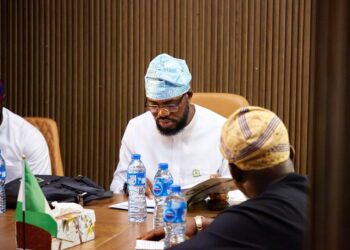
As individuals, the amount we know about the world is miniscule. One psychologist estimated that an individual’s knowledge store is about one gigabyte, much less than fits on a typical USB thumb drive. This is why most of us struggle to name even a few foreign leaders or accurately draw a picture of a bicycle.
Even within our domains of expertise, ignorance is a fact of life. Surgeons are masters of the procedures they perform, but that doesn’t mean they can identify the appropriate anesthetic or design an effective course of follow-up physical therapy. And there are also constraints on how many different procedures they can master: That is why orthopedic practices often have a “knee-guy” and an “ankle-guy.”
That’s because individual knowledge is narrow. We retain what we need to guide our actions and forget much of the rest of what we learn. This is why teaching high-school students personal finance is almost completely ineffective at fostering positive financial behaviors later in life—if you don’t use it, you lose it.
So how is society able to accomplish so much if each of us knows so little? The answer is that we divide up cognitive labor. We each have our narrow area of expertise, and we each make a small contribution. By combining our knowledge, we can tackle complex problems. For example, surgery requires a whole team of experts: pre- and post-operative care nurses and technicians, scrub techs, anesthesiologists, assistant surgeons, and nurses. Further afield but also critical are the scientists at medical-research labs who develop the newest techniques and therapies, the designers and engineers who create medical devices, and the administrators who figure out how the procedure gets paid for. They each play a vital role; no individual has anything approaching the knowledge required to understand it all.
This ability to jointly pursue complex goals is central to what makes us human. An influential evolutionary theory contends that our large brains developed to cope with the increasing size and complexity of our social groups. As our social groups grew, we developed the mental machinery to share knowledge, which in turn allowed us to respond to our environment in more complex and adaptive ways. Research in comparative psychology supports this story. One of the key skills that sets people apart from other primates is the ability to share intentions with others and jointly pursue goals.
The mind is built for collaboration, yet we lionize individual achievement. We imagine our heroes toiling in isolation, mastering all necessary skills, and solving critical problems before moving on to their next world-altering pursuit. This is a myth. Great accomplishments demand the ability to share knowledge and work together to solve problems.
One consequence of this failure to appreciate the communal nature of thinking is that we worship a notion of intelligence that reflects individual mental horsepower: the ability to store reams of information and to process information quickly and without assistance. So that is what we aspire to.
This leads to unrealistic expectations of ourselves and others. We have a hard time admitting what we don’t know or don’t understand, because it feels like we are admitting that we are unintelligent. And when others don’t know what we know, we often react with scorn.
It shouldn’t be this way. As individuals, we cannot be masters of every topic, and we shouldn’t try. Our conception of intelligence should place more emphasis on how much an individual improves a group’s ability to solve complex problems. There are many ways to contribute to a team, and being the person who can remember the most or think the most quickly is not always what’s most valuable. We should applaud individuals who are aware of the limits of their own knowledge and know how to identify expertise when it is needed.
The myth that we can do it all alone—that we can master the world solo in all its detail and complexity—may be comforting, but it is not only wrong: It is also counterproductive. Rather than hiding from our individual ignorance, we should accept it and celebrate our collective wisdom.









